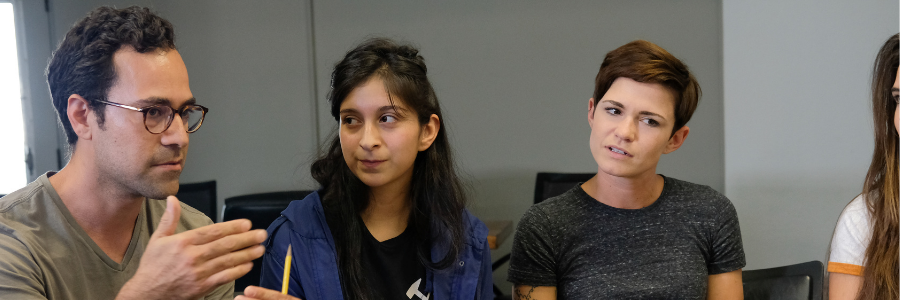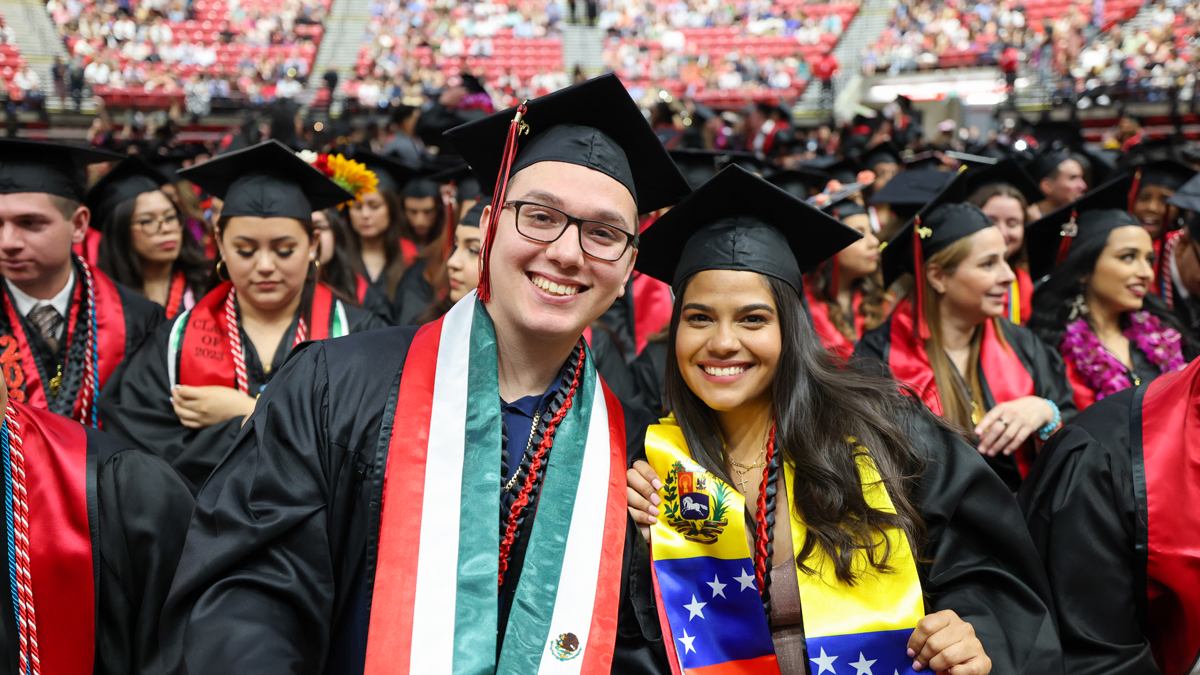Arts Alive SDSU Expands High Impact, Interdisciplinary Courses

Since 2015, the Arts Alive SDSU Interdisciplinary Collaborative Teaching Program (ICT) has enriched student and faculty learning experiences by combining courses in different academic disciplines. This spring, four new course collaborations are being offered.
In collaborating, faculty members work together to redesign existing courses, making modifications with interdisciplinary goals in mind. The paired courses are offered at the same time, on the same day, and are each assigned their own location, allowing faculty to determine when to bring their students together for combined sessions.
Faculty participants are selected through a competitive application process, and Arts Alive SDSU provides funding for them to participate in workshops designed to explore the pedagogical benefits of interdisciplinary collaboration. After discussing principles of literacy, proficiency, and creativity as defined within their own fields, they identify class activities that achieve student learning outcomes and develop assessment strategies that measure transdisciplinary impact. Then each participant creates a functional syllabus and course outline.
“By attending workshops with a very diverse group of faculty, I learned so much of their disciplines and how our students engage differently,” said Lluvia Flores-Renteria, Assistant Professor in the Department of Biology, whose Plant Systems course is included in the ICT program this semester. “I can translate some of these skills into my own teaching and research. I think it showcases an example of transdisciplinary interactions that will benefit our students and the community in general.”
The impact on student learning
Student participants in ICT courses learn now practitioners in different professional fields engage with shared subject matter or source material, encouraging students to transcend the inherited practices of their academic discipline.
Eric Smigel, Chair of Arts Alive SDSU, believes that these course collaborations create educational experiences that encourage consideing familiar ideas in new ways. “The ICT Program is based on the recognition that we’re all engaged in creative research practices, regardless of the field of study,” said Smigel. ”We just have different ways of identifying, solving, and communicating problems.”
One of the main objectives of the ICT Program is to foster the understanding of art as a mode of critical inquiry.
“What excites me is introducing both populations of students to applications of their training that they never imagined,” said Katie Turner, Lecturer in the School of Theatre, Television, and Film. Her class in Improvisational Acting will be collaborating with a practical course in Social Work this spring. “I hope it will encourage Theatre students to see how the skill set for Social Work (empathy, listening, an interest in the human condition) might translate into a career in a field like Social Work.”
“We’re all fascinated by the undiscovered possibilities of interdisciplinary collaboration,” said Smigel. “We encourage students to enroll in these high impact courses and unleash their imaginations.”
The four course pairings that are being offered for the first time as part of the Interdisciplinary Collaborative Teaching Program in Spring 2022 include:
Plants and Design: Uncovering the Nature of Diversity
Kline Swonger, M.F.A. (School of Art and Design)
Lluvia Flores-Renteria, Ph.D. (Department of Biology)
ART 249: Environmental Presentation
BIOL 530: Plant Systematics
Improvisation and Counseling Discourse
Katie Turner, Ph.D. (School of Theatre, Television, and Film)
Richard Bradway, M.S.W. (School of Social Work)
THEA 431: Workshop in Improvisational Acting
SWORK 381: Practice Skills Micro
Data Sonification and Analysis
Chris Warren, Ph.D. (School of Music and Dance)
Aaron Elkins, Ph.D. (Department of Management Information Systems)
MUSIC 560: Music and Visual Media
MIS 620: Electronic Business and Big Data Infrastructures
Mesoamerican Ceramics
Mary Cale Wilson, M.F.A. (School of Art and Design)
Carlos Figueroa Beltran, Ph.D. (Center for Latin American Studies)
ART 526/627: Clay and Glaze Technology in Ceramic Design
LATAM 580: Indigenous Communities of Mesoamerica
The content within this article has been edited by Lizbeth Persons.

